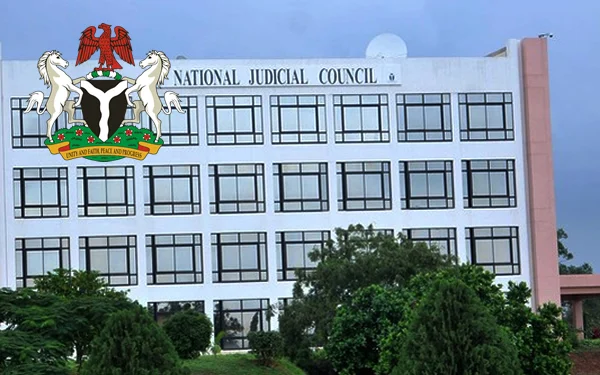In a survey, a non-governmental organisation, Citizens’ Gavel, has called for a multi-faceted approach to restore public trust and confidence in the judiciary.
The approach will include enhancing transparency in judicial proceedings, providing clear justifications for rulings, ensuring consistent application of ethical standards, and developing guidelines and training programmes for judges to improve clarity and transparency in decision making processes.
These are contained in a recently released study by the NGO under the leadership of its executive director, Nelson Olanipekun titled: “Assessing Judicial Integrity: Challenges and Recommendations for Reform in Nigeria.”
According to the study, 92 percent of the online poll with 119 respondents expressed deep distrust in the fairness of the judiciary with only five percent indicating trust, revealing significant credibility challenges.
It found that, in similar polls, 62 percent of lawyers expressed concerns about the transparency and clarity of judicial proceedings and decisions, and about 96 percent of the legal professionals expressed significant reservations about the frequency and impact of external pressures on judicial decision making.
The survey further revealed that significant challenges confronting the Nigerian judiciary include concerns over transparency, accountability, external pressures, and corruption which have taken a toll in the discharge of justice for the victims.
It called for the renewal and adjustment of salary scales to ensure transparency; fairness and adequacy in remuneration for judicial officers as well as the implementation of mechanisms to regularly review and update salary structure in line with prevailing economic conditions and professional standards.
Other solutions the study recommended are to: “Strengthen measures to resist external pressures on judicial decision making, including implementing safeguards to protect judicial independence as well as conduct regular assessments of external influences and corruption risks within the judiciary, with a focus on identifying and addressing systemic vulnerabilities.
“Enhance efforts to combat corruption within the judiciary through robust enforcement of ethical standards and disciplinary measures alongside investing in training programmes and resources to promote integrity and professionalism among judicial officers and legal professionals.”
It added that: “by diligently implementing the recommended measures, victims of abuse and domestic violence can get the closure that they so desperately need and deserve, while stakeholders can elaborately strive towards the establishment of a judiciary characterised by the highest standards of integrity, fairness, and professionalism. Such efforts are essential for ensuring equitable access to justice and steadfastly upholding the rule of law throughout Nigeria.”
We’ve got the edge. Get real-time reports, breaking scoops, and exclusive angles delivered straight to your phone. Don’t settle for stale news. Join LEADERSHIP NEWS on WhatsApp for 24/7 updates →
Join Our WhatsApp Channel










